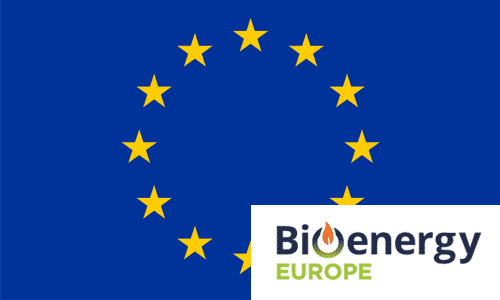Bioenergy Europe welcomes the outcome of the trilogue negotiations on the Renewable Energy Directive (RED) in reaching the EU’s climate goals. However, we regret the overcomplication of certain provisions which risks hindering the EU decarbonisation process and destabilising market actors.
Yesterday, EU legislators agreed on the revision of the Renewable Energy Directive, including provisions specific to the bioenergy sector. We applaud EU negotiators who avoided controversial approaches that would have jeopardised a large part of the sustainable biomass supply. The new overall binding target of 42,5% renewables by 2030 with an additional 2,5% indicative top up shows a strong ambition to reach 45% of renewables in the EU energy mix.
“The outcome of the negotiations shows that an emotionally driven debate, which was not based on facts, had no chance against the common sense, holistic and evidence-based approach which policymakers have decided to trust” says Bioenergy Europe’s Secretary General Jean-Marc Jossart.
However, we regret to see that local conditions were not duly considered when determining if support can be provided for biopower installations and certain feedstocks, as well as the fact that the threshold for the sustainability criteria has been lowered to 7,5MW. The overcomplication of certain provisions will result in an additional burden especially for smaller operators. The agreement rejected the conceptually flawed definition of primary woody biomass and introduced new provisions to ensure an economically and environmentally sound use of high-quality wood. The risk remains that it will still be business as usual by using fossil fuels. Bioenergy is by far the most important renewable solution that substitutes fossil fuels in the heating and transport sectors.
“We can only achieve our collective climate goals by agreeing that fossil fuels have no future and need to be phased out” added Christoph Pfemeter, President of Bioenergy Europe. “In their place, all renewable and sustainable solutions need to receive the required support to be further deployed across the EU as fast as possible.”
The outcome of the negotiations is welcomed by bioenergy stakeholders, as it reaffirms trust in bioenergy and guarantees stability for the sector overall. We need all available renewable solutions to ensure that the EU net-zero target can be achieved by 2050 – the recognition that bioenergy remains 100% renewable is a key step forward in that direction.
